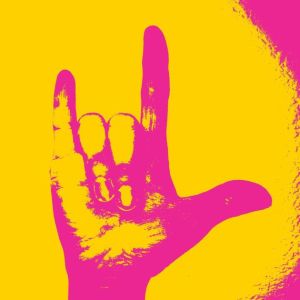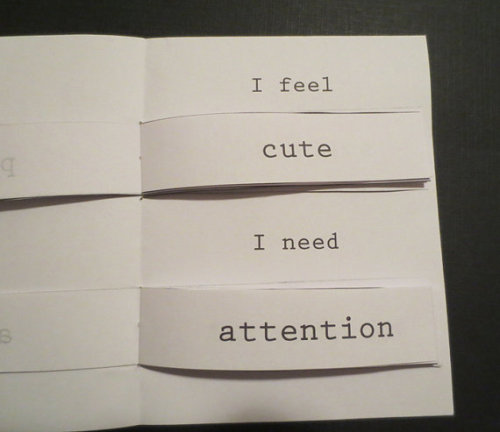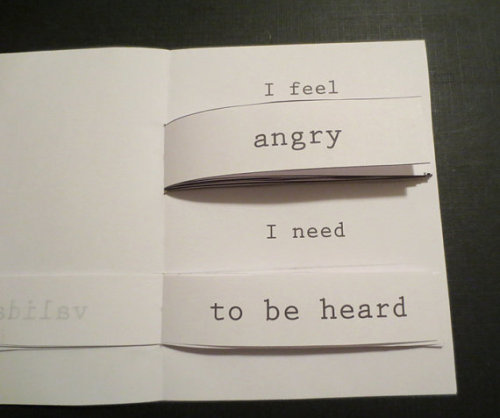#nonverbal
Related to the “loss of speech” event, it happened while I was with a NT friend. I was so overwhelmed, I gradually stopped being able to talk out loud at all. I knew I needed to warn my friend somehow, because it was her birthday and her daughter’s as well, and I didn’t want to ruin that for her.
I typed a few words on my phone to explain the situation, and you know what she did? She just said “Alright, I get it.” and she didn’t make a big deal out of it. She went out of her way for the restaurant folks to be mindful and turn down the sound of the (very loud) music, without ever specifying that I was disabled.
She was mindful to ask me “yes or no” questions, and when she had to ask open questions, she waited for me to type it out on my phone.
She also explained the situation quickly to her children, and asked them to be mindful and not talk to me too much (which I was grateful for, because those children can be so chatty and loud sometimes, even if they’re nice x) ). All in all, she was nothing, but understanding. And the situation didn’t worsen, thanks to that.
If you’re NT or allistic and you want to be a good ally, take notes. Whether your autistic friend/folk/whatever they are to you is fully nonverbal or only experiencing episodes of speech loss, respect their needs, and accept that spoken language isn’t the only viable way to communicate.
If you’re in a position to do something to help them and make the situation easier on them, don’t hesitate. If you’re not, be understanding and allow them an out. Don’t force them to stay and suffer, and, more than that, don’t complain afterward if the person is then having a meltdown.
@pixiesky said : “nonverbal is get severely diluted . it before mean can not talk at all , ever. but loud verbal autism people take word away and make mean different things now . is not good for people who can never talk , actually nonverbal people .”
—
That’s why I was asking this question, I was expecting nonverbal autistic people’s take on the subject.
I’m not sure it’s just verbal autistic people who “diluted”, as you said, the meaning of nonverbal, though. More than often, it’s NTs who tend to be those who decide stuff about autism, regardless of what autistic people think about it (like the high-functioning/low-functioning classification and such). But I could be wrong.
It’s hard to find an accurate word or expression to portray this particular experience, because selective mutism is, according to the NHS, related to social situations, when it’s not always the case for me when I can’t use my words (more than often, it’s because I’m being overstimulated, it’s not related to anxiety or social situations).
Semiverbal could be accurate, but it’s describing the fact that I have episodes where I can’t talk, and it’s not naming those episodes in particular.
Loss of verbal speech seems to be the easiest and most accurate way to describe it without using the word “nonverbal”.
I admit that I tend to differentiate between “being nonverbal” and “going nonverbal”, as one would be a permanent state, and the other an occasional episode, but if “going nonverbal” is seen as inappropriate by the nonverbal autistic community, I think it’s fair to stop using it.
I want to believe that we’re all in this together, and that we need to listen to each other, regardless of the way we’re expressing ourselves. The autistic community needs to be united, not divided.
Thank you for your valuable input, pixiesky. I hope other nonverbal autistic people will give their opinion on the matter c:.
Hi, everyone!
So, I know there’s been some controversy around the use of the word “nonverbal” and I want to use it appropriately.
This afternoon, I went to a restaurant for a friend’s birthday. Unfortunately, there was another birthday and it was extremely noisy. I started to shutdown and, finally, I was unable to say a word out loud.
I’m only starting to get some of my words back, it’s like having to push through a concrete wall to get them out.
Would you say I went nonverbal or I’m experiencing selective mutism?
Thanks for the answers!
WELCOME DAEHAKRO is a wonderful festival taking place in Seoul this autumn and on October 6th the festival held a great showcase highlighting the most popular non-verbal performances in the city this season!
Meet the musicals!



Get your information on the official website.
Or at the official Information & Ticket Box Booth, located between the Exits 1 and 2 of Hyewha station.





Happy Scream Emojis
for ☕ anon ! :]
please read the blog’s tos [pinned post] before using the emojis!








Shaking Head/No Emojis
please read the blog’s tos [pinned post] before using the emojis!










Nodding/Affirmative/Yes Emojis
please read the blog’s tos [pinned post] before using the emojis!
True Story vs LIE - Simple Interrogation Technique To Know The Difference
Suspect someone’s story or series of events is a lie? Use this easy interrogation technique to help you separate fact from fiction. When it comes to detecting deception this technique is as reliable as it gets. That said always remember to keep things in context and establish a baseline. Observe, Infer, Deduce, and trust your instincts.
The Body language of Successful Women | S. Bell

I absolutely could not resist sharing Scott Sylvan Bell’s brilliant insight into the Body Language of Successful Women. Refreshing to see someone not focusing on men for a change. You can find out more about Scott Sylvan Bell at http://readingbodylanguagenow.com/
Body language of successful women:
Having the ability to read body language like an expert can help you in many situations whether…
How to Tell Who is Lying to You – The Latest Psychological Research

In my work I often have to be able to achieve this very goal, with accuracy that is either incredible, or humiliating. There is really no in between for me. With that being said you can understand exactly why I’ve read a literal cathedral of books & articles on this topic over my lifetime.
I was raised by Psychic Readers, some of the best liars on the planet. Not only that but amazingly good,…
wordmojis to describe relationships!
Feel free to use in your servers and if you like what I do, maybe send me a tip? | or join my discord server to see emojis ahead of the queue
[Please read my Carrd before using my emojis]
Post link
So, I’m a semiverbal NYC based autism. I realized today that I go through a lot of things without talking so I’d thought I’d share. I also completely rely on wakling and public transport to get places. Feel free to add!
1. If you’re buying something off a cart and you can physically grab it, just grab it and hold it up to the cashier. They will give you the price and you can pay them and give them change all without talking. If you can smile at them before walking away, they usually don’t give a shit that you didn’t say thank you.
2. This also applies to bodegas, drug stores, etc. If they ask cash or card, you can just hand them the proper one. Yes and no questions can be answered with nodding for yes and shaking for no.
3. If I can’t hear someone or understand what they are saying, I usually will just point my ear towards them and point at it. Usually, they’ll just repeat it at and eventually I can figure it out.
4. You are totally allowed to just ignore strangers trying to talk to you. If you can get some over ear ear defenders or headphones, they are more likely to leave you alone. If someone asks for directions and you don’t know or don’t have the energy to give it, you are totally allowed to shake your head no. You are allowed to just keep walking. If someone won’t leave you alone, you are totally allowed to give them the middle finger.
5. If you can stand it, I highly recommend carrying a small backpack with sensory survival supplies. You probably know what works best for you but this is what I carry: medications that are useful to me (including over the counter stuff like ibuprofen and antacid), small collection of stim toys, ear defenders/headphones, phone/phone charger, sunglasses, compression gloves, a mini umbrella, something related to a current special interest, a water bottle, extra layers or a pair of shorts depending on weather, etc. I do alter this based on wear I’m going and what I’m willing to carry and so on.
6. A pollution mask can be a wonder for blocking city smells. You can even put a dab of an essential oil you like inside it if you choose. Then, you’re entire day can smell like that. Though, I hate the smell of things with a smell so just the pollution mask tends to work.
7. At least in NYC, if you need to stim, stim. Cities can be overwhelming and so can life. Stimming can help you regulate your body and if you need to just do it. There is probably something weirder happening then you stimming and even if not, people tend to mind their own damn business8. If you use an AAC app, you can just use it. People tend to figure it out. I personally like Speech Assistant cause it’s free and the show button makes the text really big so you can just put it in front of someone. This tends to work better for me then the synthesized voice because people have difficulty hearing that.
9. If you need a place to chill during normal hours, I highly recommend public libraries. They tend to be temperature regulated, open to the public and quiet. Plus, they have books to read. All the benefits
Autism and Selective Mutism: what’s the overlap and what are the differences?
There are a lot of autistic people who have been diagnosed and/or treated for Selective Mutism, even though currently under the DSM-5 the two conditions cannot be diagnosed in the same person. The ICD-10 may have a different classification system, though I’m not entirely sure. Also, while many feel that the name Selective Mutism is inaccurate (and many prefer the term Situational Mutism), since that is the official diagnostic term it is what I will be using here.
Many (if not most) autistic people experience loss of speech in certain situations or for certain periods of time. But what’s the difference between nonverbal episodes, which are common in autistic people, and Selective Mutism?
To know that, we have to know the characteristics of each situation:
Selective Mutism (SM) is an anxiety disorder that results in an inability to speak in certain social situations, or to certain people in specific circumstances, in people who are otherwise capable of producing speech. Common places that people with SM lose the ability to speak are at school, at parks, at parties, etc. Almost all people with SM also have Social Anxiety Disorder. One common fear that results in an inability to speak in peoplr with SM is fear of judgement. People with SM aren’t just “choosing not to speak.” Their ability to speak gets completely shut off by social anxiety, and it’s not something they can control. SM is most frequently diagnosed in children and teenagers, but adults can have it too.
Autistic people, on the other hand, often lose the ability to speak when we are overstimulated by any variety of stimuli, or when we enter shutdowns, meltdowns, and burnout. Anxiety can be one emotion or circumstance that results in us entering a shutdown/meltdown state, or even burnout. This may be why it’s often very difficult to tease apart autism from SM. Whereas anxiety is the core cause of SM, the reasons that autistic people lose speech are often a lot more complicated and varied.
Here’s an incomplete list of reasons or circumstances that might cause an autistic person who is normally capable of speaking to lose speech:
- Overstimulation from external sensory stimuli like noises, lights, and motion
- Extreme emotions like frustration or sadness
- Anxiety (because of social circumstances or for other reasons)
- Overstimulation from internal sensory stimuli like pain, hunger, or nausea
- Being in an unpredictable and/or chaotic situation, which may provoke sensory overload and anxiety
All of the things I listed above can also cause meltdowns and shutdowns, which are the most common scenarios where autistic people lose speech. However, sometimes autistic people lose the ability to speak for no apparent reason at all. We might feel perfectly fine otherwise, and yet be unable to talk. One possible explanation for this is that sometimes autistic people’s brains shut off the ability to speak in order to conserve energy, because it requires a lot of effort to coordinate all of the motor movements required to vocally articulate words.
Given this, an autistic person losing speech might appear very similar to someone with SM on the surface, but the cause of the mutism itself is quite different. Autistic people might lose speech at school, in public, at amusement parks, at dances, at parties, etc. not always because we’re anxious per se, but because we’re overstimulated by everything in our environment. The overstimulation can cause feelings of anxiety and even panic, but this anxiety is often secondary to the primary experience of overstimulation.
Now, there are probably a decent number of autistic people who also have true SM, which is a social anxiety disorder. But it’s also probably the case for many autistic people diagnosed with SM, that the cause of their mutism isn’t necessarily the same as it is for other people who carry the same diagnosis.
Greta Thunberg has been very open about her diagnosis of SM, and her experiences with losing speech. She has discussed the few years where she stopped eating and stopped talking, which to me seems like it very well could have been a period of autistic burnout. She has also talked about her experiences with overstimulation, and how when she gets too overwhelmed by sensory stimuli she enters a shutdown state and loses the ability to speak.
To me, it seems that Greta’s SM is very intimately connected with her autism, which is likely true of anyone with both diagnoses, and especially true for autistic people who also have Social Anxiety Disorder. Autistic people already have difficulty with socializing, processing information, and coordinating the movements required for speech. Add on anxiety and fear of judgement as a result of bullying and mistreatment, and it’s almost inevitable that we’ll end up having trouble speaking in certain circumstances.
Ultimately, I’m not sure whether or not it’s appropriate for autistic people to be diagnosed with Selective Mutism. The DSM-5 seems to think that it makes more sense to keep the diagnoses separate, because autistic people’s unique struggles with speech shouldn’t be confused with a very specific anxiety disorder that frequently affects non-autistic and non-neurodivergent people.
If that’s the case, I think the autistic community should start brainstorming words and terms to describe our unique experiences with losing speech, that aren’t tied up with Selective Mutism but that respect the lived experiences of nonspeaking autistics. I think “nonverbal episode” is an adequate working term, but I know that many nonspeaking autistic people have expressed that the use of the words “nonspeaking” and “nonverbal” by autistic people who usually can speak, diminishes the lived experiences of autistic people who are fully unable to speak under any circumstances.
What I’ve seen is that generally, the word “nonspeaking” or “nonverbal” is used to refer to autistic people who are completely unable to speak due to significant motor skills differences, but when those words are attached to the word “episode” they refer to a specific period of time or circumstance in which an autistic person who is usually capable of speaking becomes unable to speak. I wish there was a word to describe just that second experience, without using the words “nonspeaking” or “nonverbal.” If anyone has any ideas, let me know in the comments.
I hope this post has provided some clarity on the overlap and differences between autism and Selective Mutism :)
~Eden

switching emoji!
endos not allowed to use!!
To win you has to make everyone else feel worse than you does.
Is a fave game on the innertubes. “My coworker has cancer and calls out of work because she says the chemo is draining her. But I have ADHD and the stress is draining me!” (yes, a people said that).
Stop it.
Stop it now.
You want to know what it is like to live another person’s disability?
No, you don’t. You know you don’t. You don’t want to have cancer. You don’t want to be blind. You don’t want to be deaf. You don’t want to freak out every time someone gets near you. You don’t want to walk with a cane because you can’t trust your legs. You don’t want to need a wheelchair because after a few minutes of walking your legs go ”that’s enough for today” and stop. You don’t want to ride in a wheelchair all the time because your legs don’t do what legs are made for.
You don’t want to be insulted because you need to use a ramp to get to the door of the grocery. You don’t want to be laughed at. You don’t want to take time off work because doctors only work 10 to 4 but you NEED to see the doc regularly because the meds you take need a doc to approve every four weeks. You don’t want to lose your job because you had a meltdown where a client saw.
You don’t want to be in the other person’s place, yet you ridicule them for being in it through no choice of their own?
Stop that shit.
Disabled people have enough shit to deal with without having to fight other disabled people over who has it worse.
Work with us as a team or we all get dumped in the sewer as “burdens”.
You want to rant?
Rant at the people that make things harder for you, not the people that have different needs.
Picking on the other disabled people doesn’t make you one of the “regular” people, it just makes you an asshole. The “regular” people will still look down on you, they’ll just laugh along with you during that moment of you being an ass - then be an ass to you.
You will still get help from the rest of us, because we aren’t assholes.
You’re still an asshole.
6 ASL Signs For Autistic Folks

Because Jess and I really need one more thing to do *sarcasm* we’re learning American Sign Language (ASL) together. When you think about it, it’s very practical. When I’m having a nonverbal moment, or hour, or day, we can communicate like usual. We also won’t know for a few years if my hearing loss will progress, so learning ASL now is ideal.
I will say right up front, that signing is definitely…

















